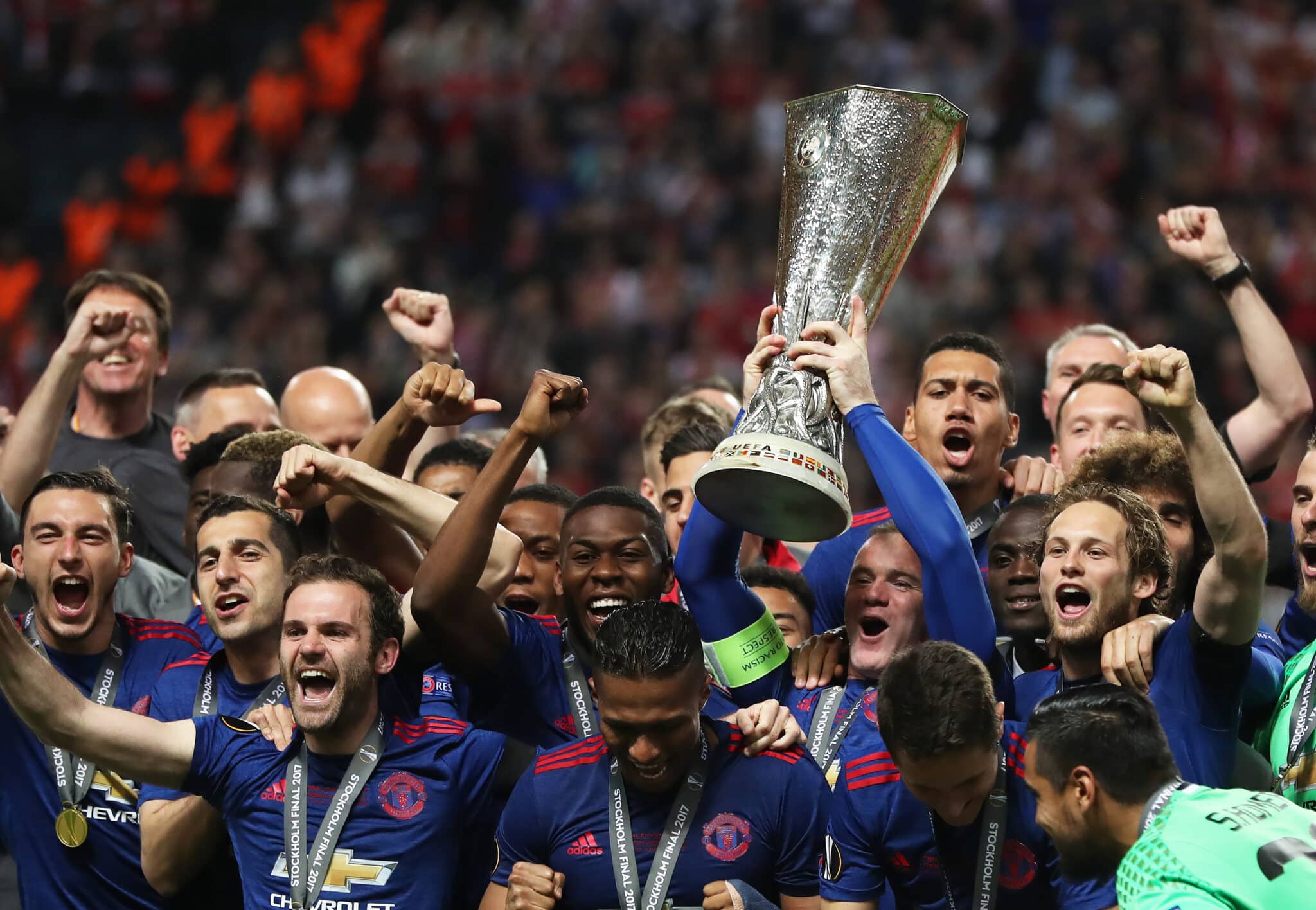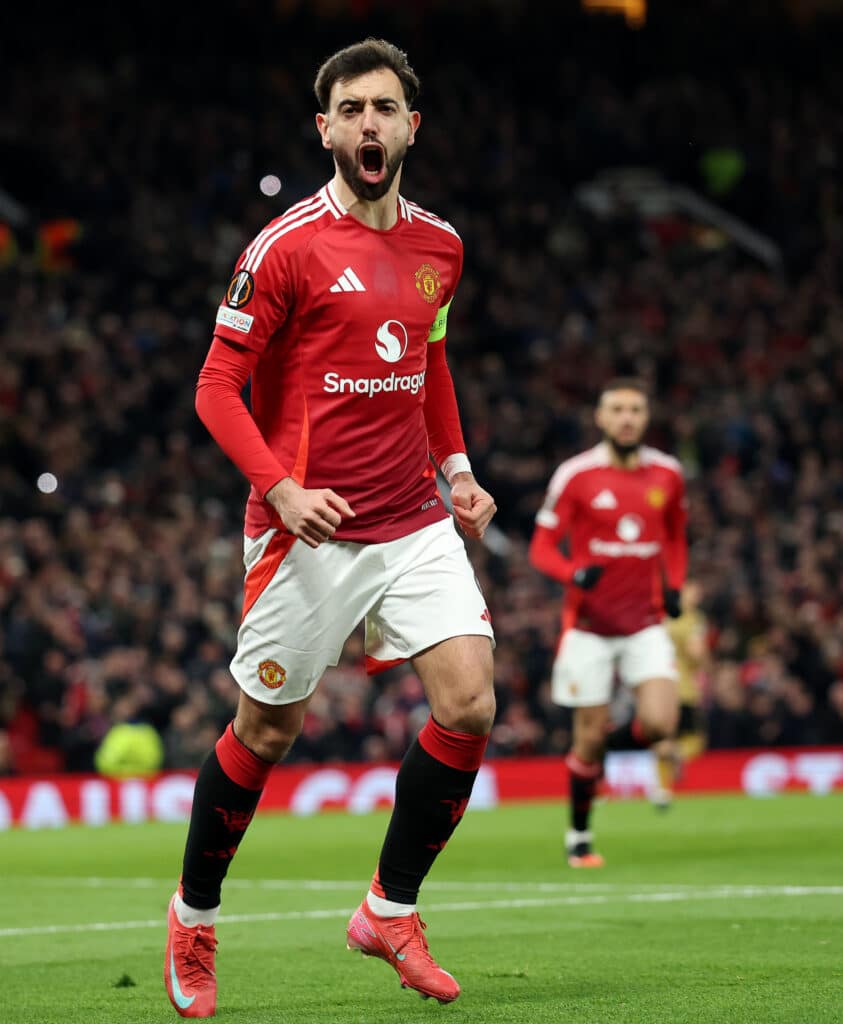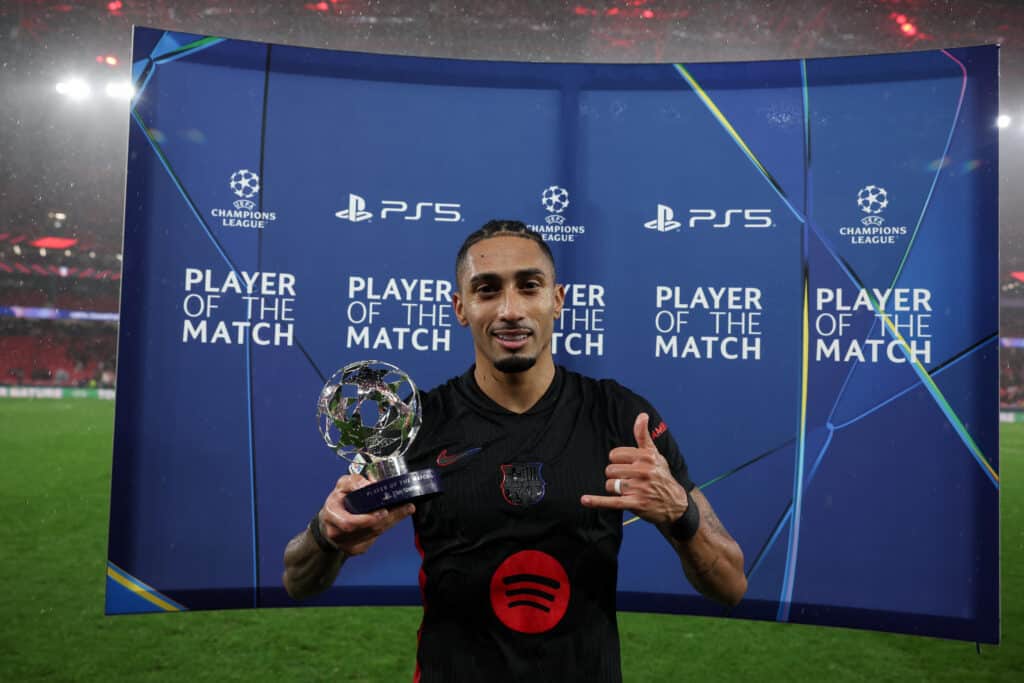> Bruno FernandesChampions LeagueSoccer
> Bruno FernandesChampions LeagueSoccer

When a scrappy underdog, battered and bruised from a gruelling season, hoists the Europa League trophy under a shower of confetti, the fans roar, the players collapse in joyous exhaustion, and somewhere in the distance, a UEFA official is already booking their flight to the Champions League.
It’s a tradition that feels as natural as a perfectly timed slide tackle, but why does it make so much sense? Why should the winner of Europe’s “second-tier” competition get a golden ticket to rub shoulders with the continent’s elite? Buckle up, because we’re diving into the glorious chaos of European football to unpack why this setup is not just logical but downright essential.
Let’s get one thing straight: the Europa League isn’t the Champions League’s less glamorous cousin who shows up to the party in hand-me-downs. It’s a beast of a competition, a crucible that tests every ounce of a team’s mettle. From the group stages to the final, it’s a marathon of high-stakes matches, often played on Thursday nights in far-flung corners of Europe. Teams like Sevilla, who’ve made an art form of winning it, or Manchester United, who’ve used it as a springboard, don’t just stumble into the final. They earn it through blood, sweat, and the occasional tactical masterclass.
Winning the Europa League means surviving a gauntlet of diverse opponents, from plucky minnows to fallen giants. The competition’s format, with its sprawling group stage and knockout rounds, demands consistency, adaptability, and depth. By the time a team lifts the trophy, they’ve proven they can handle pressure, manage squad rotation, and deliver on the big stage. Sound familiar? Those are exactly the qualities needed to compete in the Champions League. Handing the winner a spot in Europe’s premier competition isn’t charity; it’s a reward for passing a brutal audition.
? Tottenham are headed to the Europa League Final! ⚪?
— 365Scores (@365Scores) May 8, 2025
After doing the double over Bodo/Glimt, Spurs will now face Manchester United in a massive all-English showdown in Bilbao! ???
Son vs Bruno. London vs Manchester. Who takes the crown? ? pic.twitter.com/M0AhAf3pxm
European football thrives on its hierarchy, but it’s not a rigid caste system. The Europa League and Champions League are intertwined, two sides of the same shiny UEFA coin. The Europa League winner earning a Champions League spot ensures fluidity between the competitions, keeping the ecosystem dynamic. Without this pathway, the gap between the “big boys” and the “almost there” clubs would widen into a chasm. Smaller clubs or those in transitional phases—like Villarreal when they stunned Manchester United in 2021—get a shot to test themselves against the best, rather than being stuck in a perpetual second-tier loop.
This bridge also keeps the Europa League relevant. If the prize for winning was just a pat on the back and a shiny cup, top clubs might treat it as an afterthought, sending out B-teams to slog through Moldova on a Thursday night. The Champions League berth gives the competition weight, ensuring that even the biggest clubs take it seriously. It’s a win-win: the Europa League gets prestige, and the Champions League gets fresh blood.

Let’s talk about the romance of football. The Champions League is often dominated by the same heavyweights—Real Madrid, Bayern Munich, Manchester City—who flex their financial muscles and star-studded squads. But the Europa League winner crashing the party? That’s where the magic happens. Think of Eintracht Frankfurt in 2022, who stormed past Barcelona and West Ham to win the Europa League, then strutted into the Champions League to face off against Europe’s titans. They didn’t just show up; they reached the knockout stages, proving they belonged.
This injection of underdog energy keeps the Champions League from becoming a predictable country club. Europa League winners often bring a different flavor—grit, heart, and a chip on their shoulder. They’re not there to make up the numbers; they’re there to cause chaos. And when they do—like Porto in 2004 or Chelsea in 2013, both Europa League winners who leveraged their success into broader European glory—it reminds everyone that football’s hierarchy isn’t set in stone.

Let’s get practical for a second. Football is a business, and the Champions League is the golden goose. The revenue from TV deals, sponsorships, and gate receipts in Europe’s top competition is astronomical compared to the Europa League. For clubs outside the traditional elite, winning the Europa League and earning a Champions League spot can be a financial lifeline. It’s not just about the prize money; it’s about exposure, marketability, and the ability to attract better players. Villarreal’s 2021 triumph, for instance, didn’t just put silverware in the cabinet; it gave them a platform to compete with bigger clubs in the transfer market and beyond.
This financial boost also promotes competitive balance. Without the Europa League’s Champions League pathway, smaller clubs would struggle to break into the elite, as the gap in resources would keep them perpetually on the outside looking in. By giving the winner a shot at the big time, UEFA ensures that success on the pitch can translate to growth off it, leveling the playing field just enough to keep things interesting.

Not every Europa League winner is a plucky underdog. Sometimes, it’s a heavyweight who hit a rough patch. Manchester United in 2017, Arsenal in 2019 (though they fell short), or Chelsea in 2013—all clubs with Champions League pedigree who found themselves in the Europa League after a domestic stumble. For these teams, the Europa League isn’t just a consolation prize; it’s a chance at redemption. Winning it and securing a Champions League spot allows them to reclaim their place among the elite without relying solely on league position.
This safety net is crucial for maintaining the Champions League’s star power. Imagine a world where a club like Manchester United misses out on the Champions League for multiple seasons because of a single bad campaign. Fans would riot, sponsors would grumble, and the competition would lose some of its luster. The Europa League pathway ensures that big clubs who prove their worth can bounce back quickly, keeping the Champions League’s brand strong while rewarding excellence.
Let’s not forget the fans. The Europa League is a grind—Thursday night trips to Eastern Europe aren’t exactly glamorous—but the payoff is worth it. For supporters of mid-tier clubs, the dream of seeing their team face off against the likes of Real Madrid or Paris Saint-Germain is the stuff of pub fantasies. That’s the kind of thing that keeps football’s soul alive.
For fans of bigger clubs, too, the Europa League route to the Champions League is a lifeline. It softens the blow of a disappointing season and gives them something to cheer for. Instead of sulking through a campaign of mid-table mediocrity, they get to rally behind their team in a high-stakes European run. It’s the difference between a season of despair and one of hope, and that’s worth more than any transfer budget.
Okay, let’s play devil’s advocate. Some purists argue that letting the Europa League winner into the Champions League cheapens the latter’s prestige. The Champions League, they say, should be for domestic champions and top-four finishers, not “second-tier” winners. But this ignores the reality of modern football. The Europa League isn’t a lesser competition; it’s a different one, with its own challenges and rewards. And as we’ve seen, it’s winners often hold their own in the Champions League—sometimes even outperforming the so-called elite.
The “dilution” argument also assumes the Champions League is some sacred bastion of purity, which is a bit rich when you consider its bloated group stages and financial disparities. If anything, the Europa League winner adds authenticity, bringing teams that have earned their place through a grueling campaign rather than just coasting on domestic wealth.

Ultimately, the Europa League winner’s Champions League ticket is more than just a quirky UEFA rule—it’s a cornerstone of European football’s charm. It rewards excellence, keeps the underdog dream alive, and ensures the continent’s competitions stay connected and competitive. Whether it’s a minnow like Eintracht Frankfurt or a giant like Manchester United, the team that lifts the Europa League trophy has earned the right to test themselves against the best. So the next time you see a team celebrating under those Thursday night lights, remember: they’re not just winning a cup. They’re punching their ticket to the greatest show in football. And that’s a story worth cheering for.
By Nicky Helfgott / @NickyHelfgott1 on Twitter (X)
Keep up with all the latest Europa League stats & latest news on the 365Scores website and app!